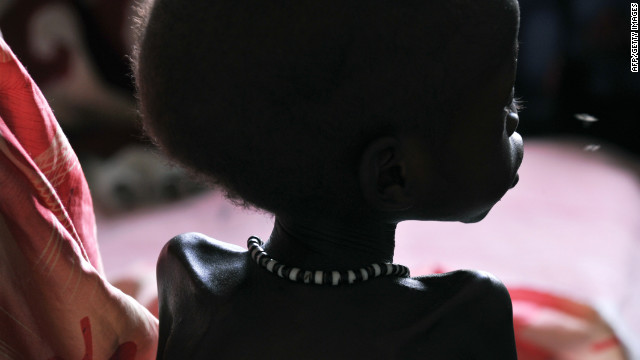By Tamara Alfred
Impunity Watch Reporter, Africa
Aid agencies have released a report stating that thousands of people, more than half of them children, died needlessly while millions of dollars were wasted because the international community did not respond to early warnings of an impending famine in East Africa. The report also warned of a new hunger crisis in West Africa.

The report by Oxfam and Save the Children says that a food shortage was predicted as early as August 2010, but most donors did not respond until famine was declared in parts of Somalia in July 2011. The agencies said many donors wanted to first see proof that there was humanitarian catastrophe, which led to a funding shortfall that delayed any response to the crisis.
“We all bear responsibility for this dangerous delay that cost lives in East Africa and need to learn the lessons of the late response,” said Oxfam head Barbara Stocking.
The report says the delays in East Africa caused thousands of deaths and increased costs for aid agencies. The British government estimates that between 50,000 and 100,000 people have died from the famine, mostly in Somalia. More than half of those who died are believed to be children.
On Friday, it will be six months since the United Nations declared famine in Somalia. The organization says tens of thousands will have died of starvation by the time the famine ends, while 250,000 Somalis are still at risk of starvation and more than 13 million people need aid.
“Children will have suffered the most,” said U.N. aid chief in Somalia, Mark Bowden. “[M]alnutrition rates in Somalia were the highest in the world, and I think the highest recorded…up to 50% of the child population suffered from severe or acute malnutrition.”
“The world knows an emergency is coming but ignores it until confronted with TV pictures of desperately malnourished children,” said Save the Children head Justin Forsyth.
However, Kenyan economist James Shikwati believes that it would have been difficult to prevent the famine in south-central Somalia because the region is controlled by al-Shabab, an insurgent group that has greatly limited the work that aid agencies can do in the region. “I don’t think the solution to famine is just sending money in good time,” said Shikwati. “Even if you have all the money in your pocket and all the grain in your store, unless al-Shabab allows you to access their areas then people there are still going to starve.”
Shikwati’s comments may prove to be true sooner rather than later in war-torn Sudan. United States envoy to Sudan Princeton Lyman warned today that half a million people will face an emergency bordering on famine by March if international humanitarian organizations are not allowed into areas of Sudan that are mired in conflict. The government in Khartoum argues that the border areas of South Kordofan and Blue Nile are too dangerous for NGOs to operate in.
Lyman said a lack of leadership, a history of vicious ethnic violence and the indictment of Sudan’s President Omar al-Bashir by the International Criminal Court are all factors that have complicated the crisis in that country. He further lamented the lack of a mechanism for Sudan and newly independent South Sudan to resolve conflicts, “despite the two sides having been in a unity government for five years and having participated in years of peace talks.”
Since South Sudan gained independence from the north in July 2011, fighting has continued in the border regions of South Kordofan, Blue Nile, Unity State and Upper Nile. Countless lives have been lost and hundreds of thousands have been displaced, exacerbating an already desperate humanitarian crisis.
The Sudanese ambassador to South Africa, Ali Yusuf Alsharif, warned that the situation in his country could become worse than Somalia. However, he also cautioned that outside pressure may further complicate the situation.
“The world has looked at Somalia, not knowing what to do,” Alsharif said at a conference. “But if you push everyone [in Sudan], you could have a situation worse than Somalia.”
For more information, please see:
CNN – Sudan faces potential famine, U.S. envoy warns – 18 January 2012
Huffington Post – Somalia Famine Response Too Slow, Thousands of People Died Needlessly: Report – 18 January 2012
BBC News – Somali famine ‘will kill tens of thousands’ – January 15 2012